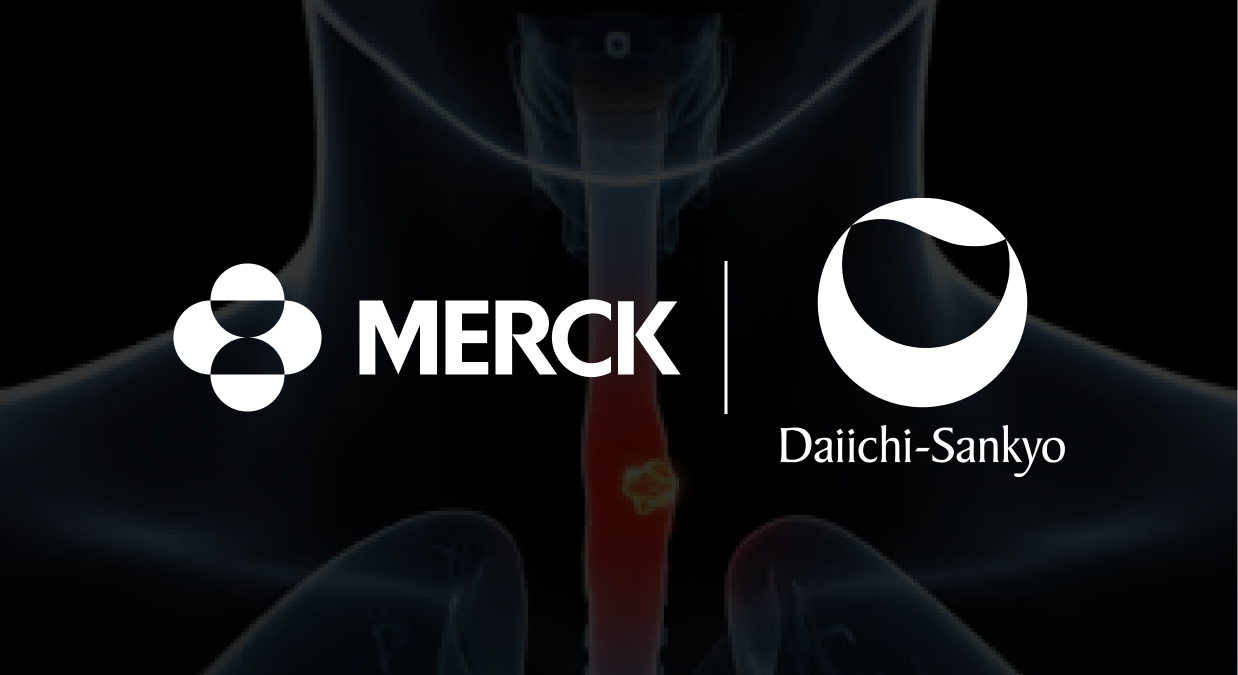Daiichi Sankyo And Merck Dose First Patient In IDeate-Esophageal01 Study For Advanced Esophageal Squamous Cell Carcinoma Patients
Daiichi Sankyo & Merck begin Phase 3 trial of I-DXd in advanced esophagal cancer after promising early-phase results.
Breaking News
May 20, 2025
Vaibhavi M.

Daiichi Sankyo and Merck have announced that the first patient has been dosed in the IDeate-Esophageal01 Phase 3 trial, evaluating ifinatamab deruxtecan (I-DXd) in patients with unresectable advanced or metastatic esophageal squamous cell carcinoma (ESCC) who have progressed following treatment with platinum-based chemotherapy and an immune checkpoint inhibitor. The trial compares I-DXd to the investigator’s choice of chemotherapy in this high-need patient group.
“Patients with metastatic esophageal squamous cell carcinoma continue to experience poor outcomes despite currently available treatments. The encouraging clinical activity seen in our early-phase signal finding trial supports further evaluation of ifinatamab deruxtecan as a potential treatment strategy for these patients,” said Mark Rutstein, MD, head, therapeutic area oncology development, Daiichi Sankyo. “
Ifinatamab deruxtecan is a B7-H3-targeting antibody-drug conjugate (ADC) developed by Daiichi Sankyo and jointly developed with Merck. It is potentially the first-in-class ADC targeting B7-H3, a protein highly expressed in several tumor types, including ESCC. The start of this pivotal trial is based on encouraging data from the IDeate-PanTumor01 Phase 1/2 study, which showed promising anti-tumor activity in heavily pretreated ESCC patients and was presented at ESMO 2022 and 2023.
“Advanced esophageal squamous cell carcinoma is a difficult-to-treat disease, and unfortunately, overall survival remains low. The initiation of the pivotal Phase 3 IDeate-Esophageal01 clinical trial demonstrates our shared commitment with Daiichi Sankyo to further expand our clinical development program evaluating this potentially first-in-class ADC across multiple solid tumors where there are unmet needs for new treatment options,” said Marjorie Green, MD, senior vice president and head of oncology, global clinical development, Merck Research Laboratories.
ESCC represents nearly 90% of esophageal cancer cases globally and is associated with poor survival, especially when diagnosed at an advanced stage. Despite advances in first-line therapy, there is a critical lack of treatment options for patients whose disease progresses.
